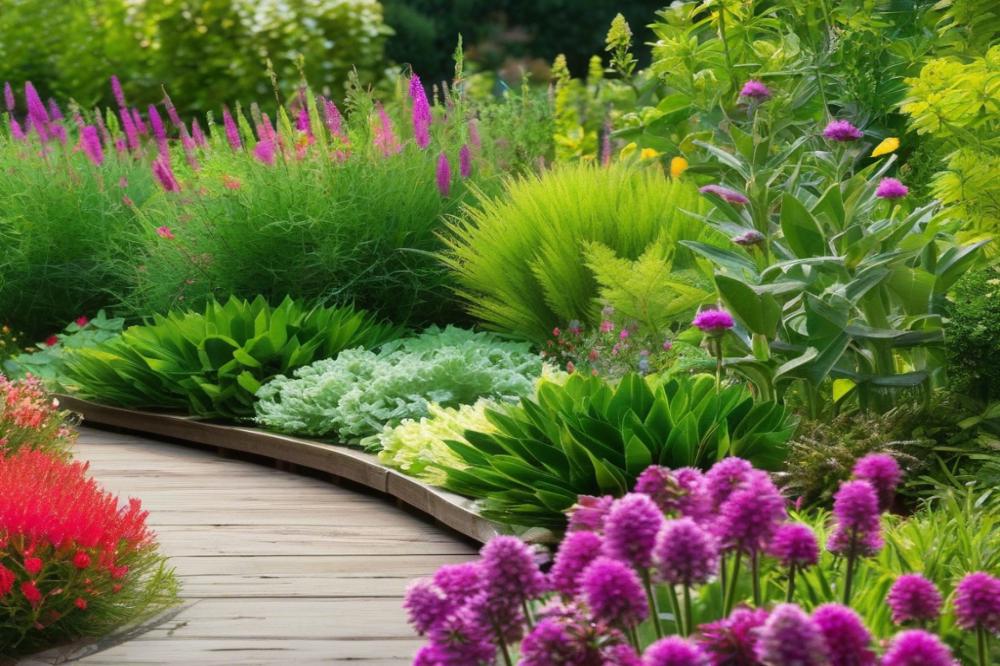Introduction
Many gardeners today are exploring natural pest control methods. These approaches help maintain healthy plants without relying on harmful chemicals. Eco-friendly solutions are becoming increasingly crucial as people seek sustainable practices. Choosing natural alternatives not only protects the environment but also promotes biodiversity.
Organic gardening encourages using resources that are gentle on the ecosystem. Home remedies can be effective tools in keeping unwanted pests at bay. One such remedy has gained attention for its multiple benefits: coffee grounds. These simple leftovers from your daily brew might just be the key to a thriving garden.
Using coffee in the garden offers a unique way to improve soil health. Not only do they act as a soil enhancer, but they can also serve as an insect repellent. Many gardeners appreciate coffee benefits beyond just pest control. It transforms waste into a useful resource, reducing landfill contributions and supporting eco-friendly practices.
Implementing these gardening tips can lead to healthier plants and a more balanced garden ecosystem. With a little creativity, coffee grounds can provide a natural pesticide under various conditions. They deter pests while enriching the soil, bringing a sustainable approach to garden care.
Understanding Coffee Grounds
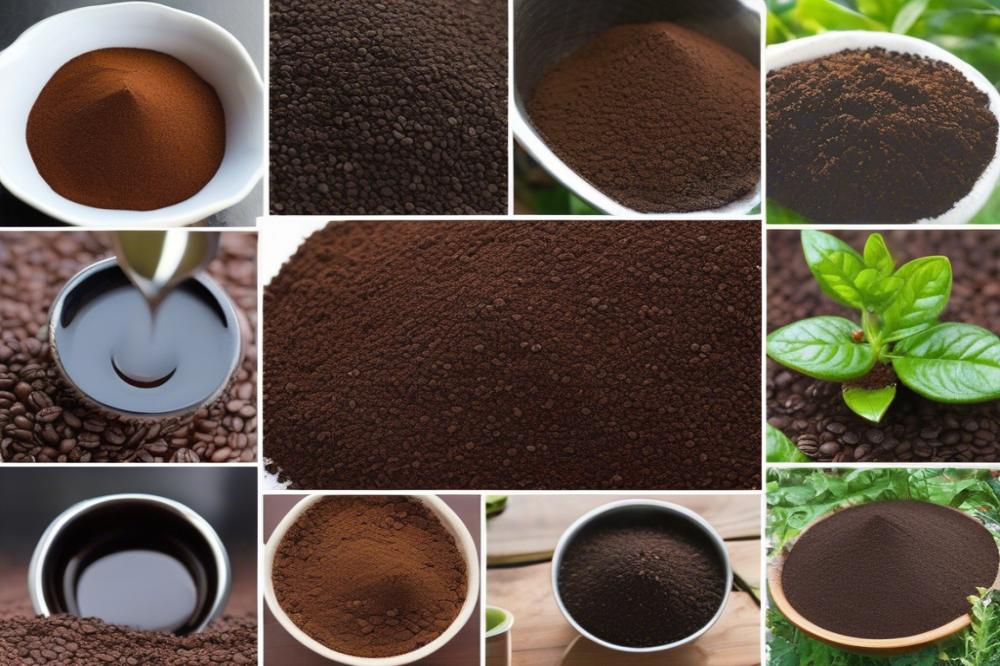

What are coffee grounds? Simply put, they are the remnants of coffee beans after brewing. When a cup of coffee is made, water extracts flavor and caffeine from the grounds, leaving behind a dark, gritty mixture. Many people throw these used grounds away, but with a little creativity, they can be an asset to your garden.
The nutritional composition of these grounds is quite interesting. They contain a moderate level of nitrogen, which makes them a valuable addition to any compost pile. Other elements include calcium, magnesium, and potassium. Those essential nutrients contribute to healthier plants and richer soil. Organic gardening practices benefit significantly from these components.
Key Benefits for Gardens Beyond Pest Control
Using coffee grounds extends beyond just acting as a natural pesticide. In fact, they serve as an excellent insect repellent. Many pests, such as ants and slugs, dislike the strong aroma of coffee. Sprinkling these grounds in garden beds can help keep unwanted bugs at bay.
Another advantage lies in their function as a soil enhancer. When mixed into the earth, coffee grounds improve soil structure and drainage. They can help foster a better environment for earthworms and other beneficial organisms in your garden care routine. Those little helpers play a vital role in breaking down organic matter and aerating soil.
Adding these grounds improves water retention in sandy soils; thus, they are eco-friendly choices for sustaining moist conditions while reducing the need for constant watering. gardening tips often highlight using waste materials, and this practice aligns perfectly with sustainable practices. Using coffee benefits not only your plants but also helps reduce waste in landfills.
Many gardeners have discovered home remedies that incorporate coffee grounds. They can be mixed into compost or sprinkled directly onto plant beds. This strategy adds nutrients and can deter certain pests without harmful chemicals. So, why not use what you already have to promote a thriving garden?
Coffee Grounds as a Natural Pest Repellent
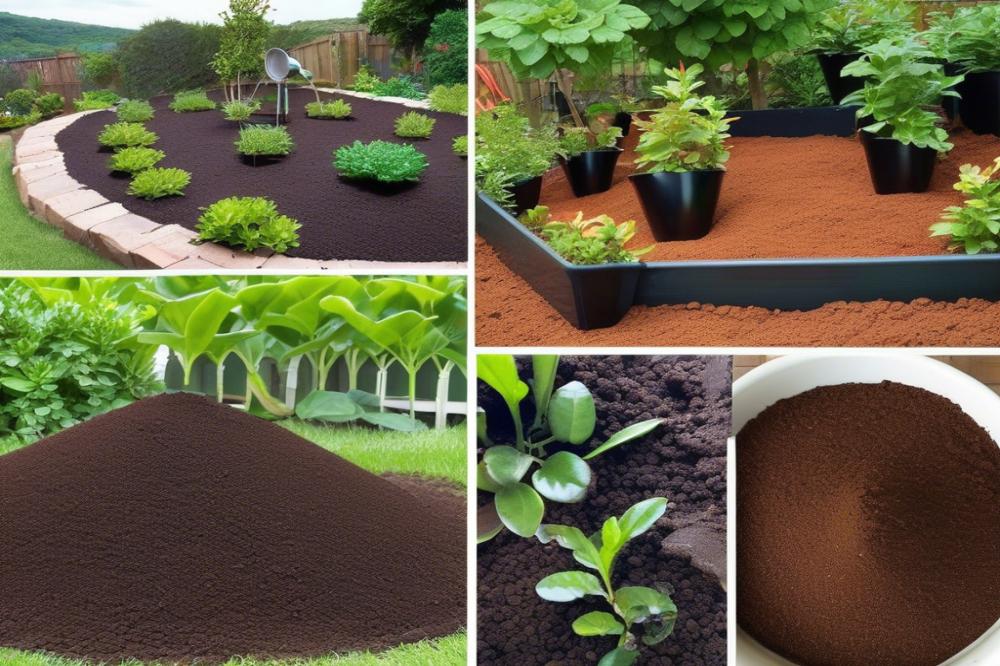

Coffee grounds serve as an effective natural pesticide against various pests. They contain compounds that can deter unwanted insects. The strong aroma of coffee can confuse or repel many creatures. For instance, a simple sprinkle around plants can create a barrier. This strategy is particularly useful for gardeners looking for eco-friendly solutions.
Several types of insects are known to be repelled by coffee residues. Ants, in particular, dislike the scent and often avoid areas treated with it. Snails and slugs also tend to steer clear when they encounter these grounds. Their soft bodies react poorly to the texture, which may cause irritation. Using this method in your garden can significantly reduce those slimy visitors.
Research supports the idea of using coffee as an insect repellent. Studies have shown that certain compounds in coffee can interfere with pests’ ability to navigate. In fact, some experiments indicate a reduction in insect populations in treated areas. Home remedies like these align perfectly with organic gardening principles. They contribute to sustainable practices while promoting garden health.
Consider incorporating coffee as a soil enhancer as well. It adds beneficial nutrients that can support plant growth. When mixed into the soil, it improves drainage and aeration. This multifaceted approach not only repels pests but also benefits the overall garden. Incorporating these gardening tips into your routine can yield significant advantages.
Overall, brewing up some coffee for your plants isn’t just about enjoying a morning drink. The benefits extend well beyond the cup, making it a valuable tool in garden care. By integrating coffee grounds into your gardening efforts, you’ll find a cost-effective and natural solution to manage pests.
How to Use Coffee Grounds in Your Garden
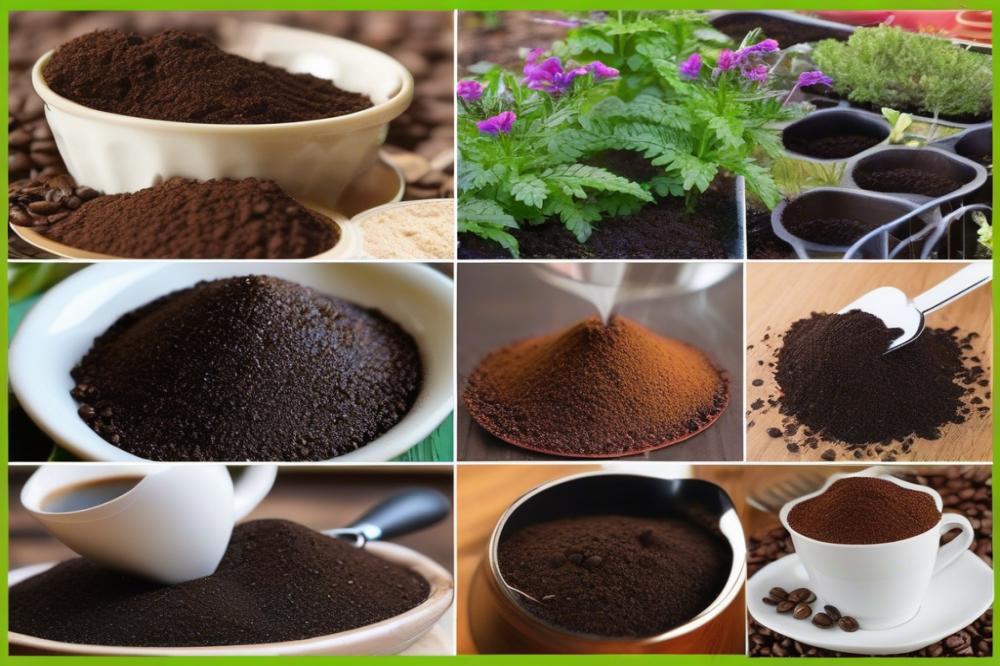

Best Practices for Applying Coffee Grounds as a Pest Control Method
Sprinkling used coffee grounds around plants creates a barrier. Ants, snails, and other pests often avoid this area. A thin layer will do; too much can smother plants. Check local pest issues before applying. Finding out which insects are a problem helps target efforts effectively. Consistency is key, so repeat this practice regularly for better results.
Mixing Coffee Grounds with Soil as a Soil Enhancer
Integrating used grounds into your soil can improve its quality. They add nutrients like nitrogen, which is essential for plant growth. Mix them evenly into the top layer of soil. This promotes better drainage and aeration. Sustainable practices, such as this, create a healthier garden environment. Over time, your soil will become rich and supportive of your plants’ needs.
Effective Home Remedy Recipes Combining Coffee Grounds with Other Natural Pesticides
Creating home remedies is straightforward and beneficial. One simple recipe combines coffee grounds with garlic. Blend crushed garlic cloves with the grounds and add water. Let it steep overnight, then strain and spray the mixture on plants to deter pests. Another option is mixing the grounds with neem oil. This eco-friendly combination acts as an insect repellent while nourishing the soil. Use these recipes as part of your gardening tips to keep your plants safe from unwanted visitors.
Gardening Tips for Incorporating Coffee Grounds
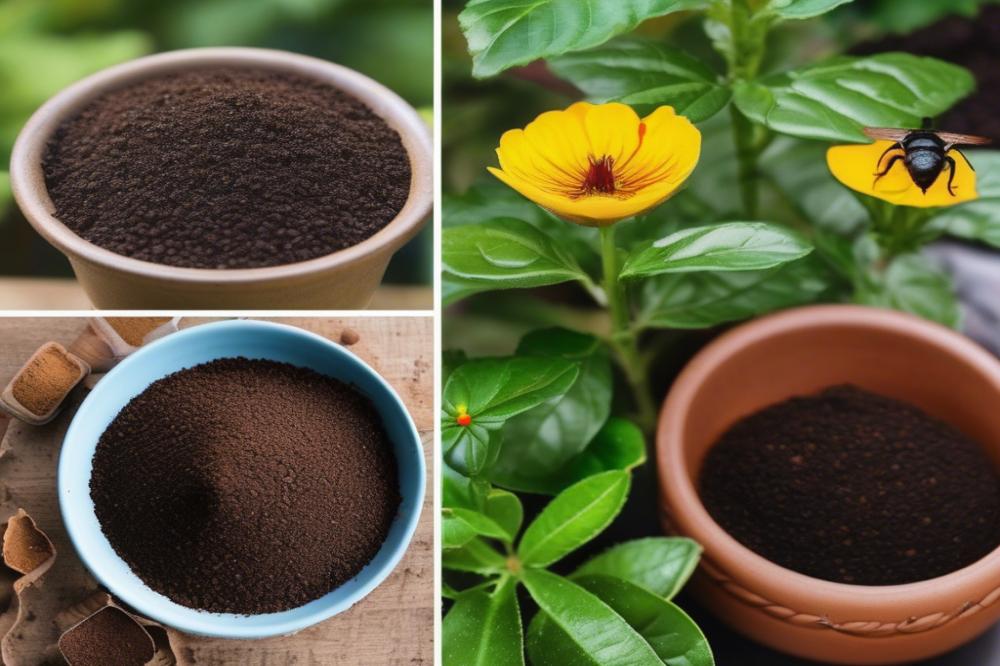

Optimal Timing and Conditions for Using Coffee Grounds
Using coffee leftovers can be most effective during the growing season. Spring and early summer are ideal times to apply them. After brewing, let them dry slightly before adding them to your soil. This process prevents mold and encourages healthy growth. Apply after rain to maximize the absorption into the soil. Incorporate them into your garden when planting new seeds or trees. Keep in mind that they should not dominate the soil; moderation is key for garden care.
Combining Coffee Grounds with Other Organic Gardening Practices
For better results, mix coffee grounds with other organic materials. Pair them with compost to create a nutrient-rich blend. This mixture acts as both a soil enhancer and a support for existing plants. Creating a layered effect in your garden beds can improve drainage. Combining these practices makes your garden more eco-friendly. Home remedies involving organic gardening techniques ensure a thriving backyard without harmful chemicals.
Recommended Plants and Crops That Benefit from Coffee Grounds
Certain plants thrive with added coffee nutrients. For instance, roses and hydrangeas show remarkable improvement. Vegetables like radishes and carrots are also good candidates. These crops appreciate the added acidity in the ground, which encourages robust growth. Additionally, herbs like basil and parsley respond well to this treatment. Using this unique addition helps repel unwanted insects as well, acting as a natural pesticide. Remember, not all plants benefit equally; avoid using them around plants that prefer neutral to alkaline conditions.
Additional Benefits of Coffee Grounds
Using coffee grounds can significantly enhance soil fertility and promote healthy plant growth. They are rich in nitrogen, a vital nutrient that helps plants thrive. When mixed into the soil, they improve its structure and help retain moisture. Plants have a better chance of flourishing when their environment is enriched with these organic materials.
Worms and beneficial insects also greatly appreciate these grounds. They find them delicious, which encourages them to stick around. These creatures aerate the soil and break down organic matter, making nutrients more accessible to your plants. As a result, a thriving ecosystem develops right in your garden, leading to even healthier growth.
Using this eco-friendly material offers impressive environmental benefits as well. By repurposing a common waste product, you contribute to sustainable practices. Instead of sending coffee grounds to the landfill, recycling them into your gardening routine reduces waste. This approach not only helps your garden but also lessens your overall carbon footprint.
In addition to their benefits for the soil, coffee grounds serve as a natural pesticide and insect repellent. Many gardeners use them as a deterrent against unwelcome pests. Sprinkling them around plants can help keep away certain insects without resorting to harmful chemicals. These simple home remedies allow for a safer and more sustainable way to protect your garden.
The coffee benefits extend to enhancing garden care techniques as well. When added to compost piles, these grounds can accelerate decomposition. They add to the nutrient content of the compost, creating richer soil for future planting. These practical gardening tips can transform how you approach your plants.
Bringing It All Together
Using coffee grounds for pest control offers a range of advantages. They serve as a natural pesticide, deterring many unwanted insects. Not only do these grounds repel pests, but they also enrich the soil with nutrients. This organic material can improve your garden’s health while keeping it pest-free.
Adopting this method in your gardening practices promotes sustainability. It’s a simple way to reduce waste and help the environment. Instead of tossing these grounds in the trash, consider their potential in your garden. By incorporating them, you foster a healthier ecosystem and contribute to organic gardening. Plus, it’s a win-win situation for both gardeners and nature.
Ultimately, the best way to see results is by taking action. Experimenting with this natural remedy in your garden can lead to surprising benefits. Try mixing some grounds into your soil or spreading them around plants. These small adjustments may ward off pests and create a thriving environment. So, gather your used brews and start applying these gardening tips today. Enjoy watching your garden flourish without harmful chemicals!


